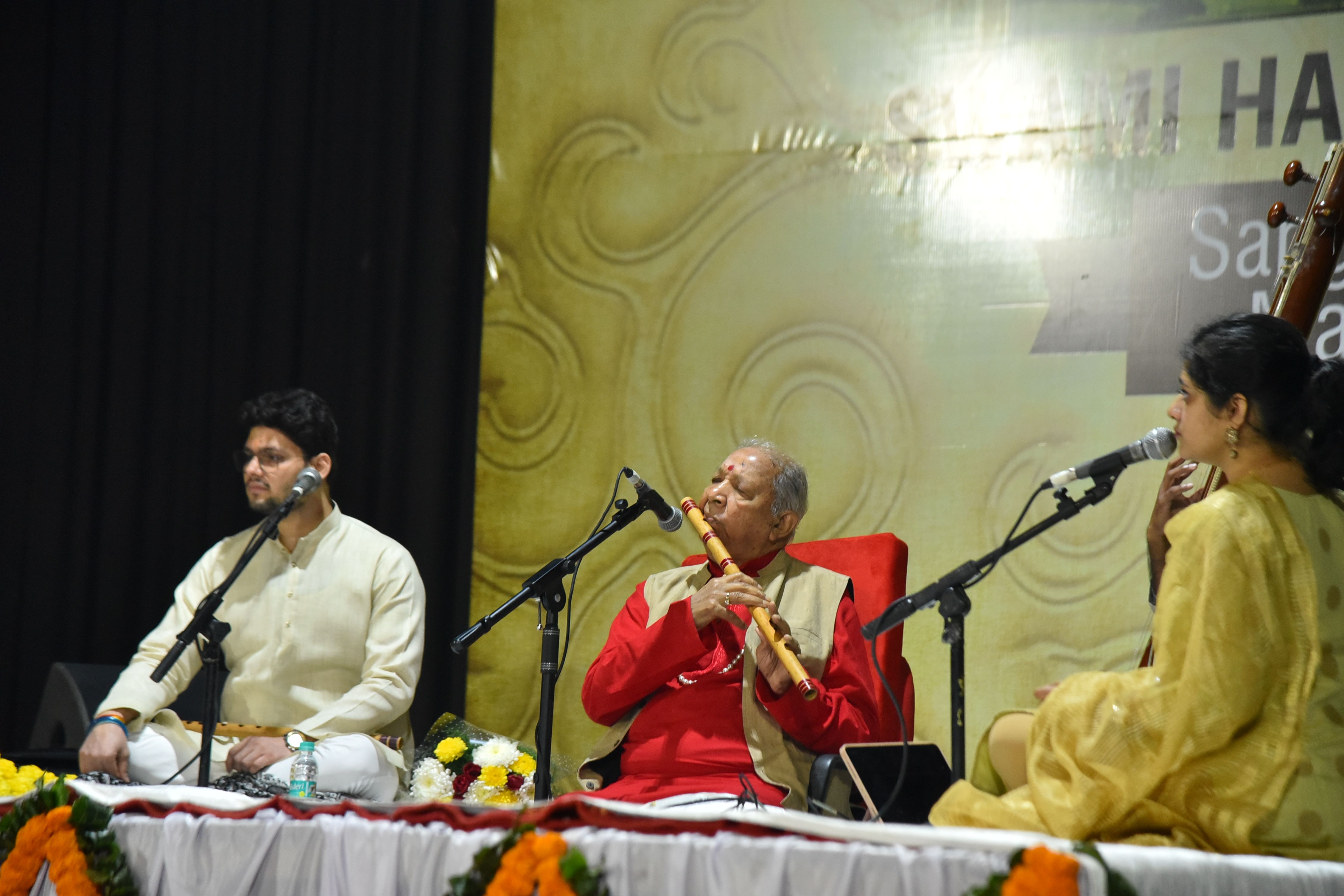Events & Updates
Honouring Indian classical music and dance at Haridas-Tansen Sangeet Nritya Mahotsav

Curated by 82-year-old Padma Bhushan Uma Sharma, the festival recreated the essence of the Mehfil Andaaz format, offering an intimate connection to the guru-shishya tradition. Event was attended by over 2,000 people over three days
 TDJ News Service
TDJ News Service
14 Jan, 2025
The 26th Swami Haridas-Tansen Sangeet Nritya Mahotsav concluded with a showcase of India’s rich heritage of classical music and dance. The festival, held over three enchanting evenings at Modern School, Barakhamba Road, brought together some of the nation’s most celebrated artists, mesmerizing audiences with their masterful performances. Curated by 82-year-old Padma Bhushan Uma Sharma, the festival recreated the essence of the Mehfil Andaaz format, offering an intimate connection to the guru-shishya tradition. Event was attended by over 2,000 people over three days.
The festival opened with a captivating evening of classical music. Ustad F. Wasifuddin Dagar commenced the event with a soul-stirring Dhrupad recital. Known for his deep devotion and technical mastery, he performed Raag Kambhoji, a favourite of the Dagar family, often sung in Carnatic traditions but rendered in the Dhrupad style. He followed this with Raag Adana, featuring the iconic composition Shiv Tandav.
Dagar’s renditions transported the audience into a meditative realm, perfectly setting the tone for the festival. Following this, Ustad Shujaat Khan, a sitar maestro was welcomed by the audience with a standing ovation. Drawing from a rich repertoire of classical compositions, his masterful rendition showcased his extraordinary command over the sitar, leaving the audience humming to his tunes. The evening reached its crescendo with a mesmerising flute recital by the legendary Pt Hariprasad Chaurasia who breathed life into the night with his soulful interpretations. His flawless mastery over the bansuri (bamboo flute) was evident as he navigated intricate ragas effortlessly.
The second day built on the success of the opening night, featuring Pt Vishwamohan Bhatt and his son, Pt Salil Bhatt, who presented a captivating performance on the Mohan Veena and Satvik Veena, respectively. Accompanied by the Manganiyars from Rajasthan, their repertoire included Rajasthani Maand and folk songs like Jhir Mir Barse Meh based on Raag Des.
This was followed by a jugalbandi by Pt Shubhendra Rao on the sitar and Saskia Rao on the cello, blending Indian and Western classical styles seamlessly. They presented a captivating recital that began with Alaap, Jod, and Jhala in Raga Janasammohini, followed by Vilambit and Drut Teen Taal in Raga Vachaspati.
The meditative Alaap, rendered in the authentic Maihar gharana style, demonstrated a profound depth and artistry that resonated with the audience. The evening concluded with a mesmerising vocal performance by Shubha Mudgal who began with two Khayal compositions in Raag Kedar, including Ab Kal Na Pare in Vilambit set to Tilwada, and Kanha Re Nand Nandan in Madhya Laya set to Teentaal. Transitioning into Raag Megh, she performed Ghumadat Ghan Garajat Baar Baar in Madhya Laya, set to Teentaal, and ended with a self-composed Dadra, Jaaye Kaun Pani Haye Thado Banwari, set to Keharwa Taal. The emotional depth and versatility of her voice captivated the audience, leaving them awe-struck.
The final evening celebrated the grace and storytelling of Kathak alongside Indian classical music.
Padma Bhushan Uma Sharma, at 82, brought Kathak to life with her graceful performance. Despite health challenges, she beautifully presented Kathak Bhav on ‘Maiyaa Mori Mein Nahi Maakhan Khayo’ while seated, showcasing one of the traditional and ancient aspects of Kathak.
Tags : Music, Delhi, Indian classical, Modern School, Barakhamba Road